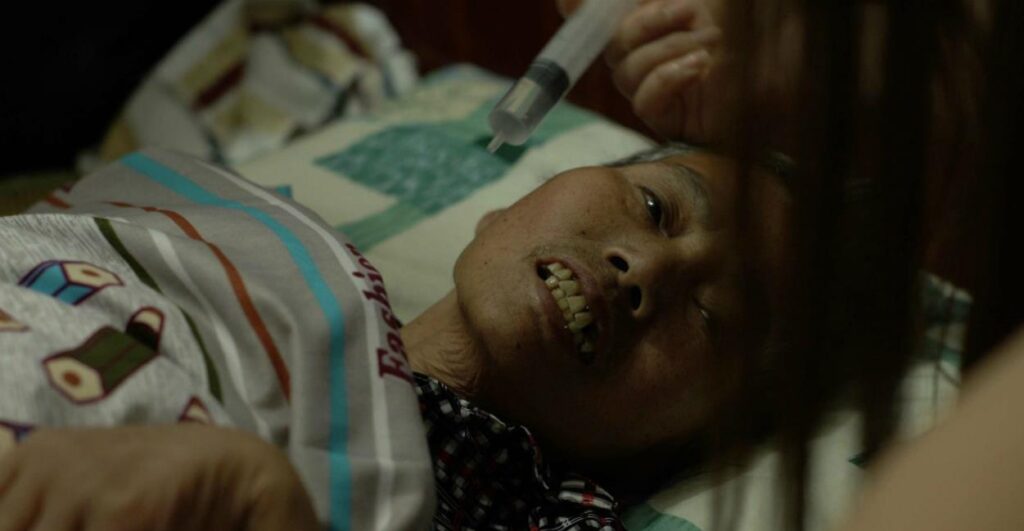Chinese documentarian Wang Bing is interested in process, in the minutiae of daily life within a system—and especially in the way systems break down. So it wouldn’t have been a surprise if Mrs. Fang had chosen to focus its attention on the intimate details of its 67-year-old, Alzheimer’s-suffering widow’s death. But that doesn’t seem to be what the director is up to here; instead, he often retreats from Fang’s bedside for little vignettes taking place just outside the family home.
The several fishing scenes here though, for instance, are less about providing the audience a reprieve than they are about understanding how the different generations of Fang’s family are coping. It’s the young that go fishing—and when they finish, they go to work. They’re rarely if ever seen by Fang’s bedside, a fact that one of her sons laments. Almost everyone here keeps moving; Fang’s children, too, keep moving, but in the more confined space of the dying matriarch’s bedroom. Fang, meanwhile—in crucial, lengthy close-ups—is almost still, at rest. The existential consideration of this human progression aligns Mrs. Fang with the tenets of Wang’s objectivist, anthropological cinema.
Published as part of Toronto International Film Festival 2017 | Dispatch 1.


Comments are closed.